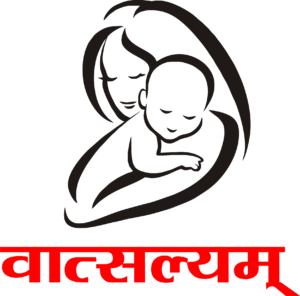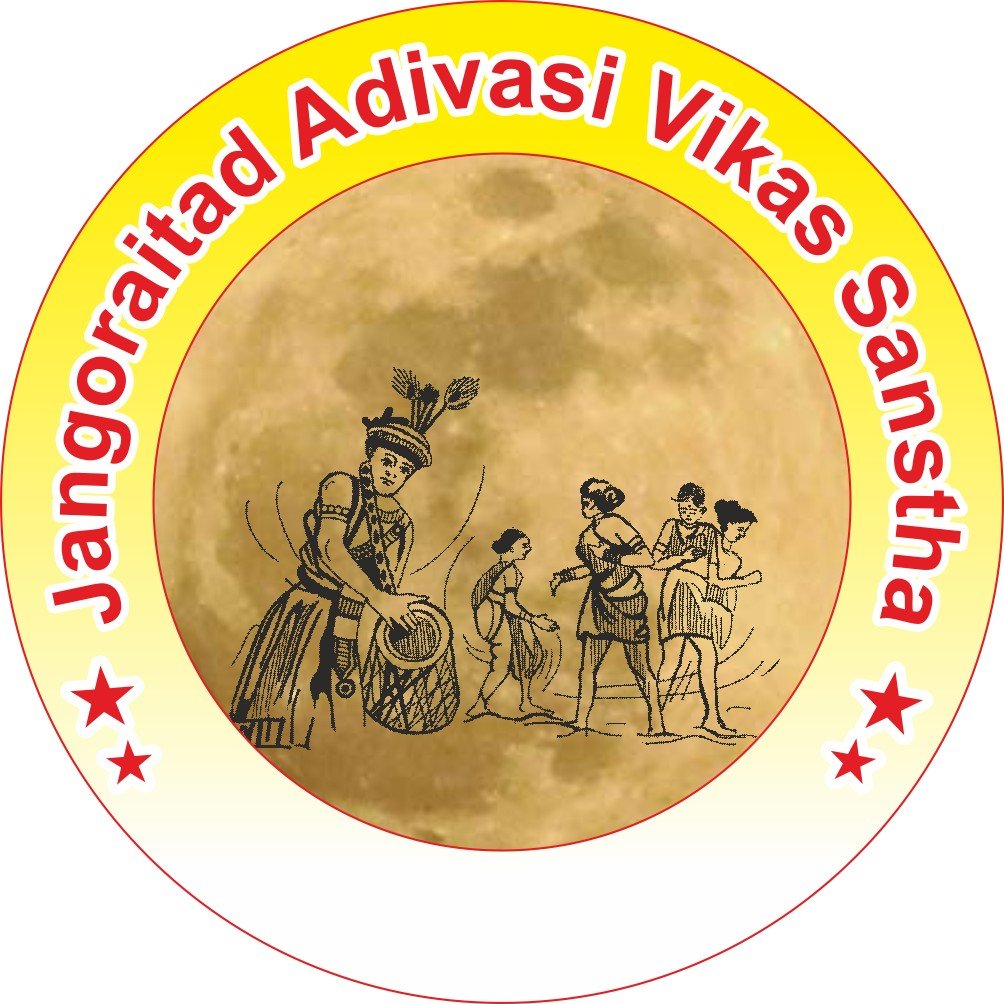VATSALYAM
Your donation mean a lot to them

Vatsalyam
Jangoraitad Adivasi Vikas Sanstha was formed in the year 1989 and since then the Sanstha has been actively involved in the works of social welfare. The Sanstha has evolved over a period of the last 10 years with the association of people typically from multiple professions, expertise and locations/state. These working hands of Sanstha belong to learned people who come from the highly experienced background of Education Service Sector, from the field of Information Technology, highly skilled and well-known Doctors, Pharmacist, Advocates, self run young Entrepreneurs, Officers from Government offices, managers from private corporate etc. The overall team at Sanstha is a good mix of experience, youth, enthusiasm and skills which are required to run the Sanstha and execute projects for the well-being of society.
Vatsalyam At a Glance
The Vatsalyam (Sanskrit: Pure Expression of Motherly Love) Project is a home-grown comprehensive health initiative formulated to tackle the challenges of maternal mortality and morbidity in Nagpur city Maharashtra State, India. It was initiated in 2015-16 by the Jangoraitad Adivasi Vikas Sanstha(JAVS) in response to the Global Health Survey which put Nagpur as having the not-so-good maternal and child health indices in central India.
The Mission
The Vatsalyam Project caters to pregnant mothers. The Vatsalyam programme was also intended to achieve the Global Development Health Goals. It is a free health program for pregnant women and newborn babies. The Vatsalyam initiative aims at ensuring that maternal health care service delivery to underprivileged couples is accessible and efficient enough to effect a reduction in the rate of maternal and infant mortality. The Vatsalyam model has been recognized by the masses as a viable template for achieving the targets of the Global Development Goals on maternal The Vatsalyam Project caters to pregnant mothers. The Vatsalyam programme was also intended to achieve the Global Development Health Goals. It is a free health program for pregnant women and newborn babies. The Vatsalyam initiative aims at ensuring that maternal health care service delivery to underprivileged couples is accessible and efficient enough to effect a reduction in the rate of maternal and infant mortality. The Vatsalyam model has been recognized by the masses as a viable template for achieving the targets of the Global Development Goals on maternal.
Pillars of Vatsalyam
There are 3 primary pillars of this program.
- Maternity Health Professionals; Gynaecologists, Radiologist, Pathologists, etc
- Specially trained community health extension workers along with dedicated JAVS members.
- Generous Donors from all over the world.
The Model
The model is a comprehensive policy formulated to address four critical delays that contribute to maternal mortality and morbidity, namely:
The Delay In Deciding To Seek Care
The delay in deciding to seek care: It is a common tendency among urban poor women in this part of the world to proactively follow health routines, especially when they are pregnant. Pregnancy adds to the financial burden on the already burdened poor family. This results in hiding pregnancy and/or ignoring much-needed proper care for themselves. Most of the complications happen in the first few weeks of the pregnancy when proper care is avoided or ignored. With specially trained health volunteers and dedicated JAVS members, such reluctant would-be mothers are identified in time and are convinced of the proper health care.
The Delay In Reaching Care
The delay in reaching care: Once the pregnant woman is enrolled in the Vatsalyam program, we ensure that all required care is provided in a timely fashion. To identify the prospective beneficiaries, in the Vatsalyam project, we keep conducting health camps in urban poor residential areas.
The Delay In Receiving Appropriate Care On Arrival
The delay in receiving appropriate care on arrival: After every 15 days she will be visiting our health centre and her routine parameters will be examined. Proper medicines will be administrated when required. It is important for healthy volunteers to ensure that the woman takes all the medicines and eats a full meal. The medicines and required monthly ration are provided to a pregnant woman under this program.
The Delay In Referral To Nearby Hospital
The delay in referral: This is a crucial aspect of the entire exercise. As the date of delivery nears, mistiming of referral to the delivery hospital may nullify all efforts. The woman must reach the appropriate time and the delivery centre. This requires arranging special means of transportation.
How We Care
The following parameters are routinely examined.
Weight
Weight Doctors at Vatsalyam ensure that a woman should gain 9 -11 kg during her pregnancy. After the first trimester, a pregnant woman gains around 2 kg every month or 0.5 kg per week. If the diet is not enough, with less than the required amount of calories, the woman might gain only 5 – 6 kg during her pregnancy. An inadequate dietary intake can be suspected if the woman has gained less than 2 kg per month. She needs to be put on food supplementation. A low weight gain usually points towards intrauterine growth retardation and results in a low birthweight baby. Excess weight gain (>3 kg in a month) should arouse the suspicion of pre-eclampsia/twins.
Height
Height of Infant There is an association between maternal height and delivery outcome, at least in part, due to increased risk due to a small pelvis in a very short woman. Nulliparous women below 145 cm of height have an increased risk of disproportion at delivery and are therefore considered high-risk mothers for whom special hospital delivery is recommended.
Blood Pressure
Blood Pressure Measuring the BP of a pregnant woman is important to rule out hypertensive disorders of pregnancy. If the BP is high (more than 140/90 mmHg; or diastolic more than 90 mmHg) and albumin (protein) is present in the urine, then the woman can be categorized as having pre-eclampsia. If the diastolic BP is above 110 mmHg, it is a danger sign pointing towards imminent eclampsia. A such woman requires immediate medical attention. A woman with pregnancy-induced hypertension (PIH) /pre-eclampsia requires hospitalization.
Respiratory Rate
Respiratory Rate (RR) Doctors at Vatsalym are very vigilant, especially when a woman reports breathlessness.
Iron-folic acid (IFA)
Iron-folic acid (IFA) supplementation All pregnant women need to be given one tablet of IFA (100mg of elemental iron and 0.5mg of folic acid) every day for at least 100 days, starting after the first trimester at 14-16 weeks of gestation. This is the dose of IFA given to prevent anaemia (prophylactic dose). If a woman is anaemic (Hb<10g/dl) or she has pallor, two IFA tablets are to be given per day for 3 months. This means a woman with anaemia during pregnancy needs to take at least 200 tablets of IFA during the whole pregnancy period. This is the dose of IFA required to correct anaemia (therapeutic dose). Women with severe anaemia (Hb<7g/dl) or those who have breathlessness and tachycardia (increased heart rate) due to anaemia, should be started on the therapeutic dose of IFA and also referred to the doctor for further management.
Nutrition
Nutrition in pregnancy The pregnant woman’s diet should provide for the needs of the growing foetus maintenance of the mother’s health, physical strength required during labour and successful lactation.
Workload, Rest, and Sleep
Workload, Rest and Sleep Too much physically demanding work during pregnancy can contribute to problems with the pregnancy such as miscarriage, premature labour or underweight infants, especially if a woman is not eating enough. Women should therefore be encouraged to avoid heavy physical labour during pregnancy. If they cannot be given up completely, women should rest as much as possible between tasks. A pregnant woman should also get as much rest as possible. She should lie down for an hour or so during the day, and sleep between six and ten hours every night.
Sex
Sex during pregnancy is one of the biggest challenges! Urban poor husbands find an increase in their sexual urge whereas women usually find a drastic reduction in sexual desire when pregnant. This leads to serious domestic issues and we at the Vatsalyam are required to counsel couples in this regard.
Post Natal
Postnatal care After delivery a woman has to make both physical and emotional adjustments and she needs support and understanding. Some of the medical disorders during this period are, puerperal sepsis or infection of the uterus and surrounding tissues, urinary infection, acute prolapse of the cervix and puerperal psychiatric illness. It is important to diagnose and treat these conditions as early as possible. Some of these may lead to more serious /life-threatening complications.
Funds
Financing for the Vatsalyam program is provided by generous donors. No Government aid or grants directly or indirectly are received. We request donors to adopt one or more couples for a smooth pregnancy.

We envision a social order that opens up plenty of avenues for working in the weaker sections of society to improve the quality of life for those who don’t enjoy the normal advantages they deserve.
Nagpur, Maharashtra, INDIA
- 306, Laxminagar, 440022
- javsnagpur@gmail.com
- 9225220895
Quick Link.
- About Our Organization
- Organization Policies
- Become a Volunteer
- Volunteer Policies
- Case Studies